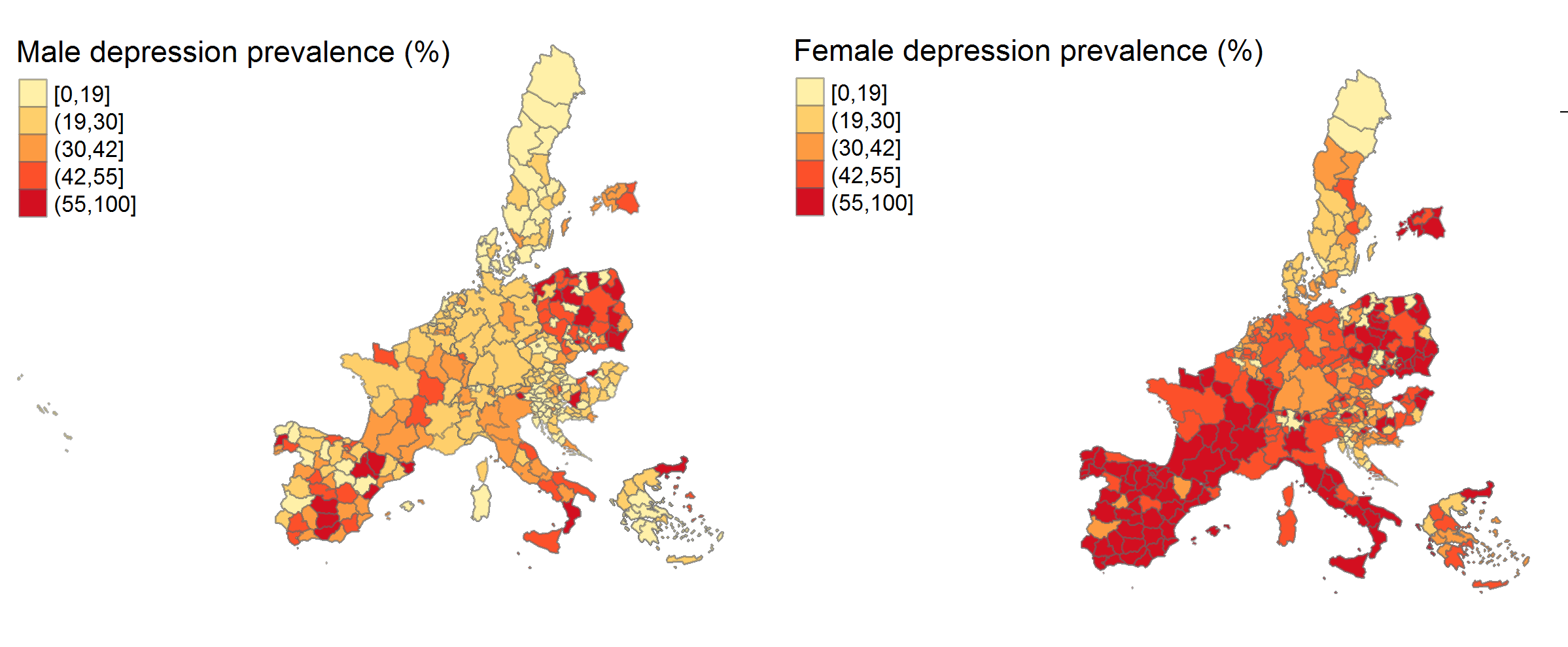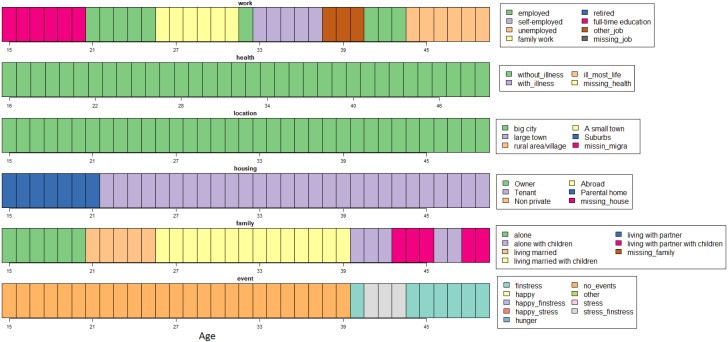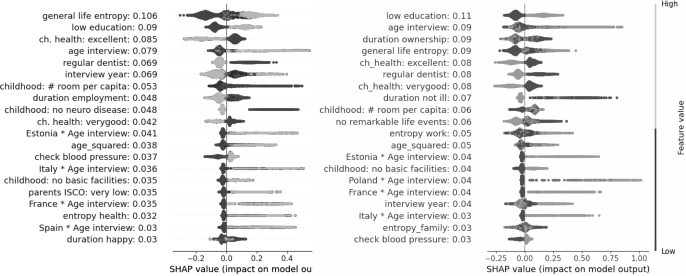News
AI and Life Events: Unraveling Depression in Old Age
Shedding a light on predicting depression in the elderly.

Researchers from LISER and the University of Luxembourg collaborated on a study aiming to predict depression in seniors. Using advanced machine learning techniques, the study explores how the interaction and occurrence of life events predict the risk of depression in seniors.
Significance: As populations age, identifying triggers for depression becomes crucial. Predicting depression in old age is challenging due to the intricate mix of life events throughout one's lifespan.
Methodology: Six machine-learning algorithms were tested on data from 19 European countries drawn from the Survey on Health Ageing and Retirement in Europe (SHARE) (https://share-eric.eu/), including clinical depression measures and comprehensive life biographies (Figure 1 and 2). Factors such as childhood conditions, job history, marital status, health, and financial stress.
Findings: The Shapley additive explanations (SHAP) method revealed that factors like age, health, childhood conditions, and education level consistently predict depression in later life for both sexes. New factors identified include life course instability and low dental care utilization (Figure 3).
Insights: Predicting depression in females appeared more feasible than in males. Surprisingly, more complex machine learning models did not consistently outperform simpler ones. The best results were achieved by combining semi-structured life biographies with an Extreme Gradient Boosting model.
This research emphasizes the importance of considering an individual's entire life biography when predicting the risk of depression in old age. It demonstrates that combining detailed life event sequences with the innovative application of AI can offer critical insights into understanding depression in old age.
Contributors: Carlotta Montorsi: LISER and University of Luxembourg; Alessio Fusco: LISER; Philippe Van Kerm: LISER and University of Luxembourg; Stéphane Bordas: University of Luxembourg
For detailed information, consult the open access article:
Montorsi, C., Fusco, A., Van Kerm, P., & Bordas, S. (2024). Predicting depression in old age: Combining life course data with machine learning. Economics and Human Biology, 52, Article 101331. https://doi.org/10.1016/j.ehb.2023.101331
This research, part of Carlotta Montorsi's PhD project funded by Luxembourg FNR and part of DRIVEN (https://driven.uni.lu/), sheds light on predicting depression in the elderly.
Fig. 1. Map of depression (%) among individuals aged 50+ at the NUTS3 level, by sex.

Fig. 2. Representation of six life dimensions for an individual. Each rectangle represents an age and each colour represents a different state. (For interpretation of the references to colour in this figure legend, the reader is referred to the web version of this article.)

Figure 3: Shapley values for Gradient Boosting, female (left) and male (right)








